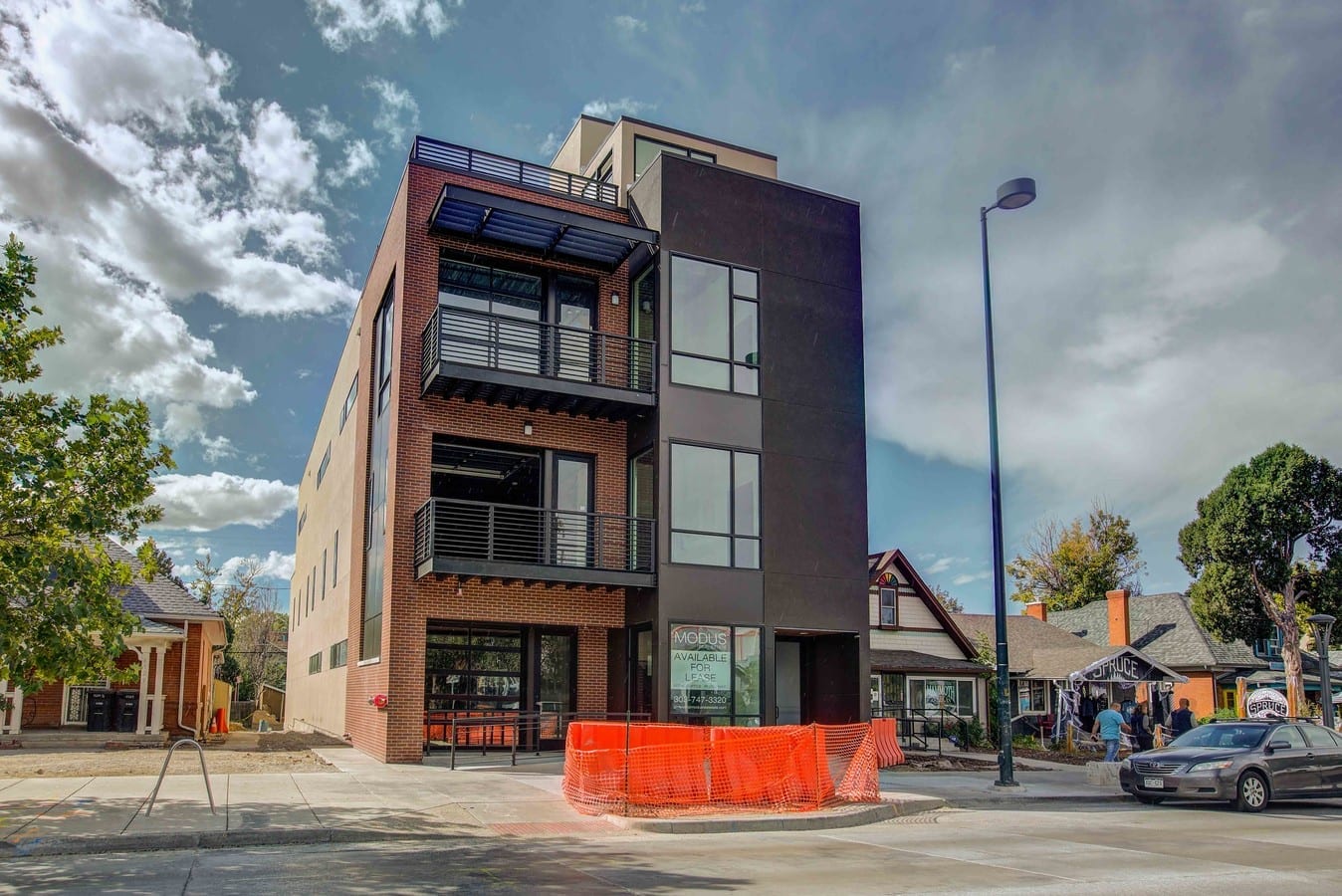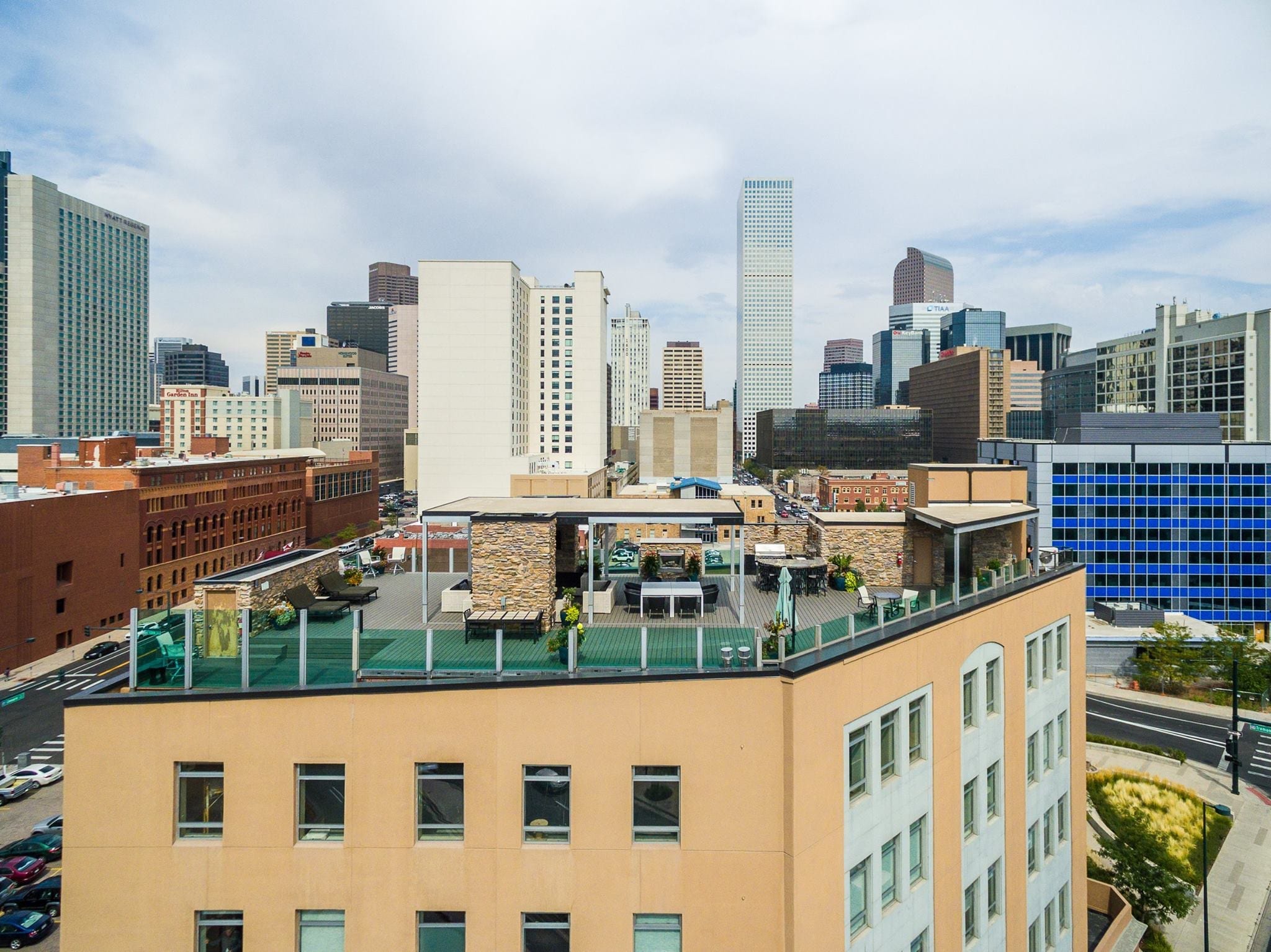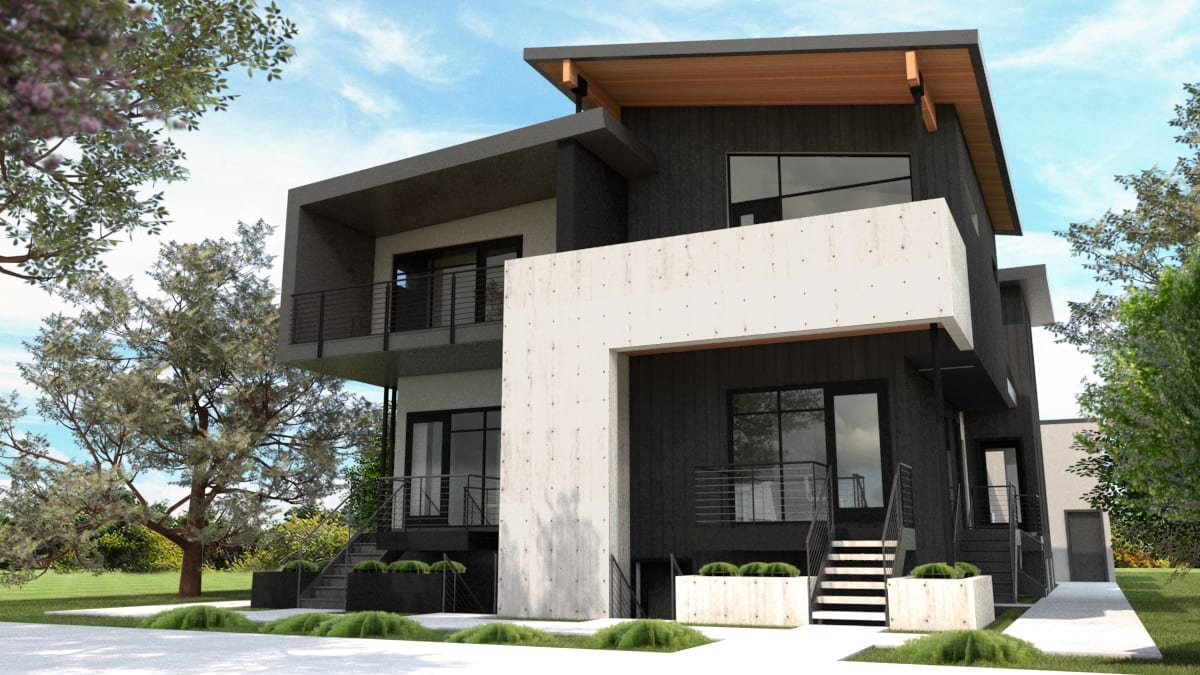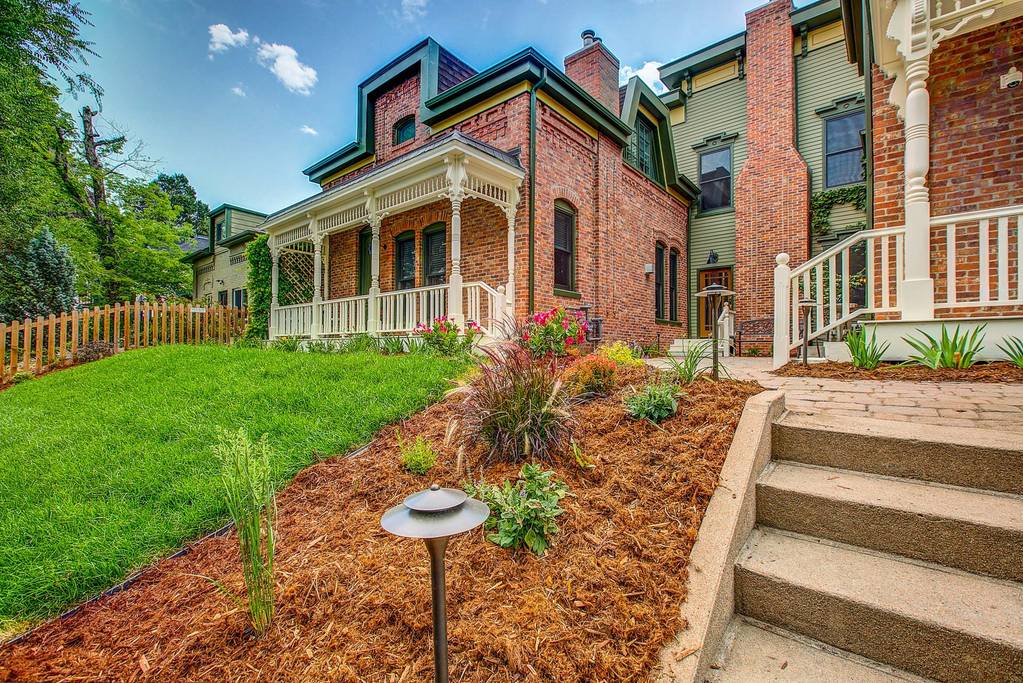Building a Steady Stream of Income
Denver is a growing city for tourism and the number of visitors that the capital city hosts shows no signs of slowing down. According to Visit Denver, The Mile High City welcomed more than 17.4 million overnight visitors in 2017. All these visitors require a place to sleep and a growing number of them are turning to digital short-term rental platforms such as Airbnb and VRBO instead of traditional hotels.
These digital platforms are some of the fastest growing companies in the world. Initially homeowners used the platforms to rent out extra rooms in their rooms, but more recently at Root Architecture & Development, we’ve helped both developers and homeowners maximize the potential of the platforms through an innovative mix of zoning, development and design.
Airbnb by the Numbers in Colorado
Root Architecture & Development reached out to Airbnb, to gain a better understanding of how the world’s largest home-sharing platform performed in the state. In response, Airbnb officials reported that Colorado Airbnb hosts welcomed nearly 1.2 million guests in 2017 and earned more than $183 million. That’s a 68 percent increase over the previous year. Denver accounted for 325,000 of those guest arrivals and $51 million in host income.
Here is a look at the guest arrivals and host income in the top home-sharing markets in Colorado:
Short-Term Rentals as a Long-Term Investment
The earnings from a short-term rental have the potential to outpace the returns of other real estate investment categories. This is especially true in Denver. Occupancy rates for hotels, hostels and short-term rentals are at record highs. The Denver hotel occupancy forecast for 2018 is nearly 74 percent. According to research conducted by the CBRE Hotel’s Americas Research, demand for hotels in Denver is expected to grow by more than 5 percent this year. This demand, combined with more than five years of double-digit appreciation in the Denver housing market, rising population growth and a low housing inventory, makes it is easy to recognize the potential return on investment.
“During the last decade, Denver has experienced some of the highest home appreciation rates of any community in the nation,” explains Amy Freeman, Root Architecture & Development’s in-house real estate specialist. “Denver ranks in the top 10 percent in the nation for real estate appreciation. The Denver market has an established track record for being one of the best locations for long-term real estate investments.”
Know the Rules – Denver’s Regulation of Short-Term Rentals
Before you buy a property or consider making renovations to your home, there are some things you should know about being a short-term rental host. The City of Denver put a series of rules in place during 2018 to govern the licensure of short-term rentals. We suggest you read them, study them, and adhere to them.
Here are the top five things you need to know:
- To list a short-term rental, Denver requires that the home be a primary residence. The program does not permit short-term rentals on second homes or investment properties.
- The City of Denver requires all Airbnb hosts to obtain a short-term rental license (STRL). The annual fee for this license is $25.
- Only one STRL is allowed per property.
- In order to apply for a STRL, Denver applicants will also be required to set up a Lodgers Tax ID. The license costs $50 and is good for two years.
- Denver property owners are required to pay a 10.75 percent occupancy tax to Denver each year. Short-term rental hosts are also responsible for paying a 4 percent tax on the sale of each booking to the state of Colorado.
Click here for a complete list of rules.
Leveraging Opportunity = Thinking Outside the Box
The goal of Denver’s regulations was to eliminate absentee landlords and create a socially sustainable system that would benefit homeowners without causing harm to neighborhoods. Although this places restrictions on the rental of residential properties – with the right knowledge and expertise investors, developers and individual homeowners can still utilize the platforms to their economic advantage. This primer outlines three paths that Root Architecture & Development has charted to help clients.
Hotels
A short-term rental license isn’t the only means by which property owners can rent their spaces on digital home sharing platforms. For those investors that are interested in obtaining a second property or a commercially-zoned unit, there is also the option of a Lodging Facility License. Short-term rentals only govern the rent of residential properties for a period ranging from 1-29 days. A lodging facility license allows for a hotel, lodging house or other place in which four or more rooms are rented out. Many of the properties featured on VRBO and Airbnb include boutique hotels.
One of the unique options that we are providing for our clients at Root Architecture & Development through our new build process involves the creation of a new form of boutique hotels. These new hotels require commercial construction as opposed to residential construction. This means designing to the International Building Code (IBC) and meeting accessibility requirements. Although there are zoning and permitting restrictions, the advantage of a small hotel for an investor is that they don’t have to be an owner operator or have an onsite property manager, yet they can still utilize the Airbnb platform to reach potential guests. For an owner, the hotel operations can be as simple as having a smart key and a code that they are able to change for every guest and a contract with a cleaning agency.

A boutique hotel that is currently under construction that includes short-term rental units on the second and third floors.
This project currently under construction in the Highlands is a great example of how Root Architecture & Development was able to design a small hotel for use with Airbnb. Located on Tennyson, this four-story building will feature retail shops on the first floor. The second and third floors will each include four small hotel units with mini-kitchenettes to create a total of eight short-term rental opportunities. All guests will have access to the fourth floor features a rooftop deck.

The Allstar Penthouse suite is newest level available at Denver Skyline. The penthouse spans the entire sixth floor.
The Denver Skyline penthouses are another example of Root’s work with hotels and short-term rentals. Root completed the architectural design for the Allstar Penthouse suite. The luxury rental spans the entire sixth floor of the building and features an open floor plan spacious living spaces and large bedrooms.
Bed and Breakfast
A Bed and Breakfast license is another avenue that investors interested in the Airbnb market can pursue. Root Architecture & Development assisted Modus Development with obtaining the necessary zoning permits to license this property in Curtis Park as a Bed and Breakfast.
The Curtis Park B & B features nine high-end units, one of which is occupied by a manager. The benefit of the bed and breakfast zoning category is that the requirements are less stringent than the hotel category, but investors must be aware of the requirement for an onsite manager.
Lockoffs – Developing Multi-Unit Projects with Built-in Investment Opportunities
Root Architecture & Development has recently partnered with a number of forward-thinking developers to create new housing projects that include the opportunity for future home buyers to use a portion of their home as a short-term rental as an investment opportunity or to offset their own expenses in an expensive housing market.
The lockoff option is common in Colorado’s ski towns, but it’s a new concept in Denver. Essentially, it’s a small rental unit within a home that is locked off by an interior door, but it has its own exterior entrance allowing both the homeowner and the guest a feeling of privacy. Root has worked on a number of designs such as the one pictured above that create living space on the second and third floor for the homeowner. The design also includes a garden-level unit that the owner can include in their own living space or lockoff and utilize as a short-term rental.

A new multi-unit development currently in design that would allow future homeowners the option of an Airbnb unit
Unlike a duplex that would require an extra parking space or an accessory dwelling unit that would requires separate sewer and water taps, the lockoff is not a separate unit. A lockoff model allows homeowners an efficient means of rental income without the costly expense of developing a separate entity.
Ready to Begin?
If you are ready to take the first steps, we’d love to hear from you. We are currently offering free 15-minute feasibility consultations with our award-wining architects. This is your opportunity to discuss your project with an expert. We’ll help you identify any roadblocks and determine the best path moving forward.
To schedule your call, click here.


